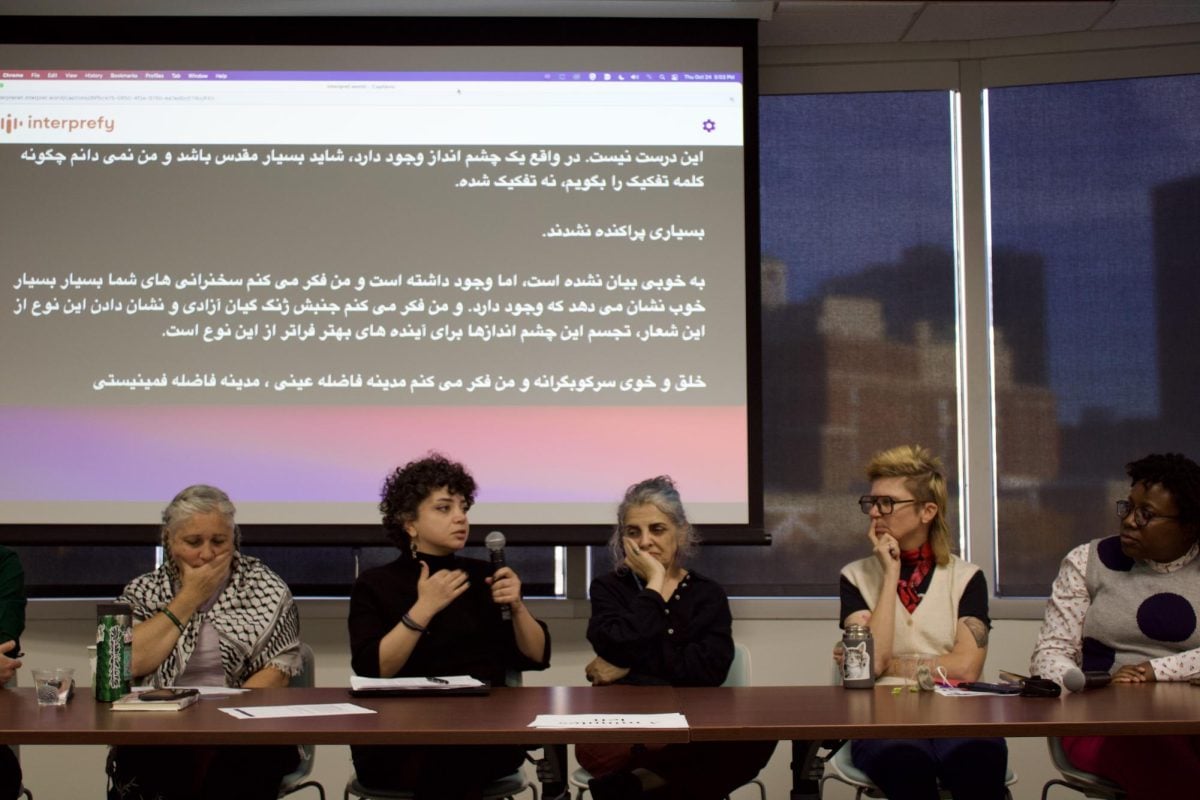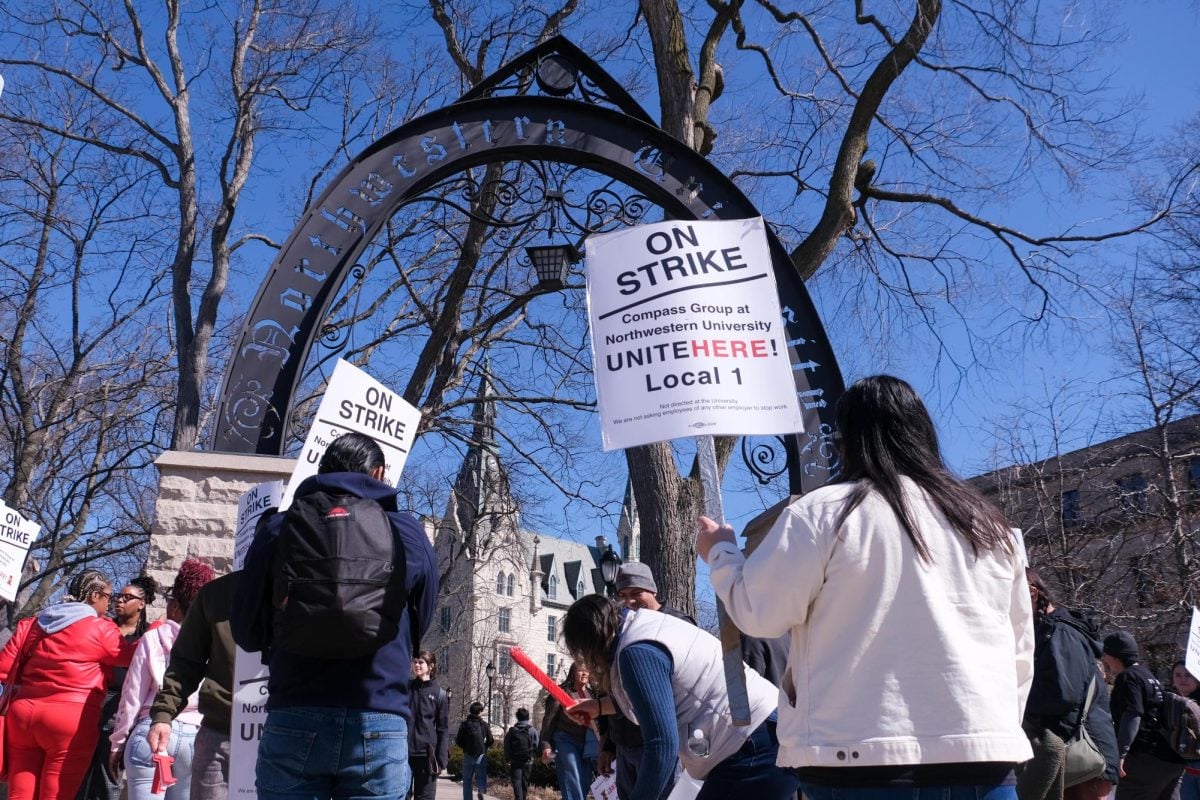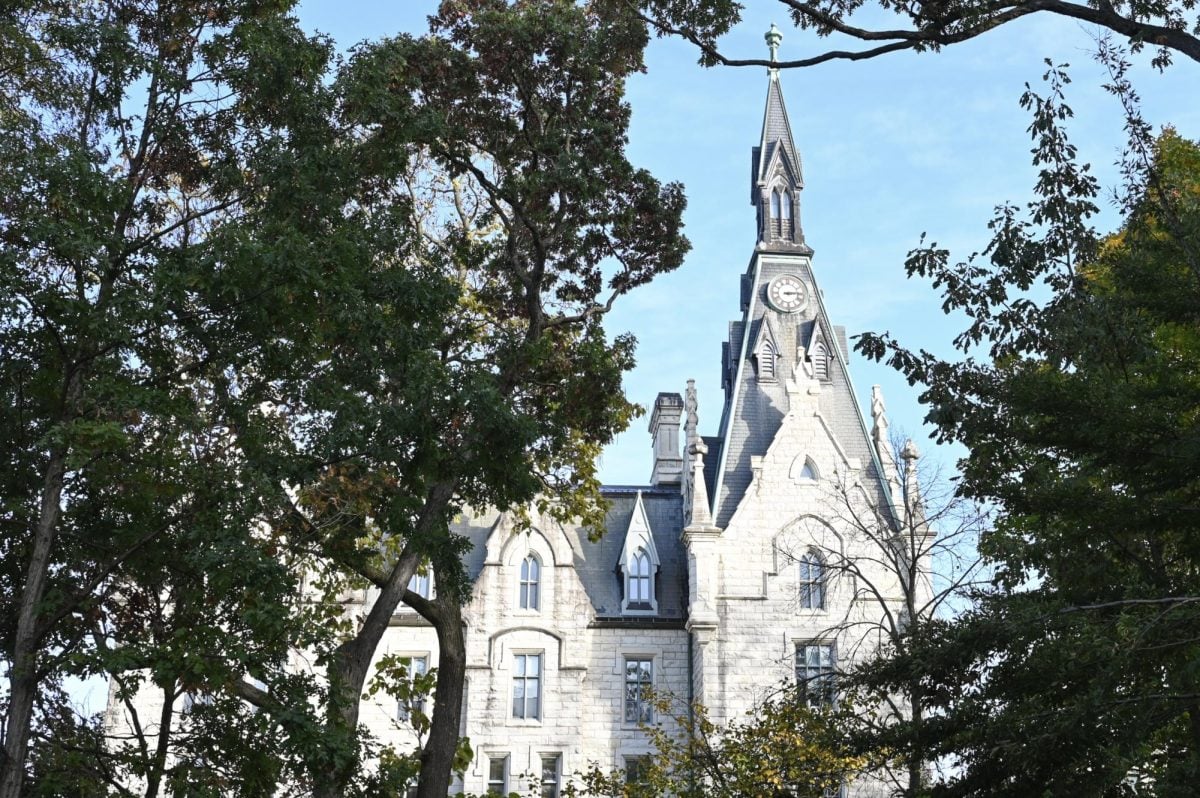The Buffett Institute for Global Affairs welcomed a series of feminist scholars and social activists in a bilingual panel co-hosted by the Colloquium for Global Iran Studies Thursday afternoon.
The first panel was hosted in Persian with a live English translation displayed using Interprefy, a live AI translator. The remaining panels were in English with a Persian translation.
Held in downtown Evanston, the event brought together panelists from around the world to speak about women’s rights in Iran. The dialogue focused on the progression of women’s rights in Iran and globally since Women, Life, Freedom, a movement calling for Kurdish women’s rights following the 2022 Iranian uprisings.
Protesters in Iran and abroad adopted the slogan “Jin, Jiyan, Azadî,” meaning “Women, Life, Freedom,” after Jina Mahsa Amini, a young Iranian woman, died in Iranian religious “morality police” custody in September 2022 after refusing to wear a hijab in public.
In her opening remarks, moderator and global health Prof. Elham Hoominfar said Women, Life, Freedom sparked a revolutionary movement for feminism. No previous protests in the last decades have called for such systemic change, she said.
Panelist and Communication Prof. Moya Bailey said she appreciated the different perspectives on feminism between the Persian and English dialogue. She said it is important to break down the barriers of language to diversify conversations.
“It’s harder to come close to stories that you don’t know the language to,” Bailey said. “Intersectionality impacts the way we all move through the world.”
Gradually, the conversation shifted towards solidarity between social movements.
Erica Meiners, a professor of education and women’s and gender studies at Northeastern Illinois University, brought up the emergence of the FreeHer Campaign, an American movement where people advocate against the construction of new female prisons and the criminalization of women.
By discussing these movements, Meiners said she hopes the movement gains more advocates and starts mobilizing people from other causes. She called solidarity and information-sharing between movements a form of “co-education.”
“We have to think about, ‘How do we connect movements?’” she said. “It’s about creating momentum.”
According to a United Nations Women report published in 2022, achieving full gender equality across the globe could take close to 300 years at the current rate of feminist progress.
Zeina Zaatari, panelist and director of the Arab American Cultural Center at University of Illinois Chicago, highlighted current progress globally in advancing feminist dialogue and including more identity groups.
“We see collaborations in terms of technology, strategy, practices, in terms of economic and trade agreements,” Zaatari said. “Those are already in place. It’s about what can further our vision to have an interconnected world.”
For the future, Zaatari said people must view social movements as a matter of empathy.
When Hoominfar asked whether feminism in both Iran and the rest of the world is a matter of politics or human rights, panelist Firoozeh Farvardin said every movement has some level of discussion around identity, because everyone has different backgrounds and perspectives.
Towards the closing of the final panel, Alborz Ghandehari, a professor of ethnic studies at the University of Utah, said the Women, Life, Freedom movement is the “most” intersectional in Iran’s history.
He also said the rhetoric that movements borrow from various writers, advocates, scholars or other “revolutionaries” matters significantly in gaining traction for their cause.
“Think of the countless songs: Chilean songs that were recovered (in Farsi) or ‘Bella Ciao,’ there was an Iranian version of that. This is a very beautiful impact,” he said. “You can arrest people, persecute people, but you can’t silence them.”
Email: alexiasextou2028@u.northwestern.edu
Related Stories:
— Northwestern hosts panel on women’s rights in Afghanistan
— Community members mourn deceased Kurdish woman, voice support for nationwide protests in Iran







